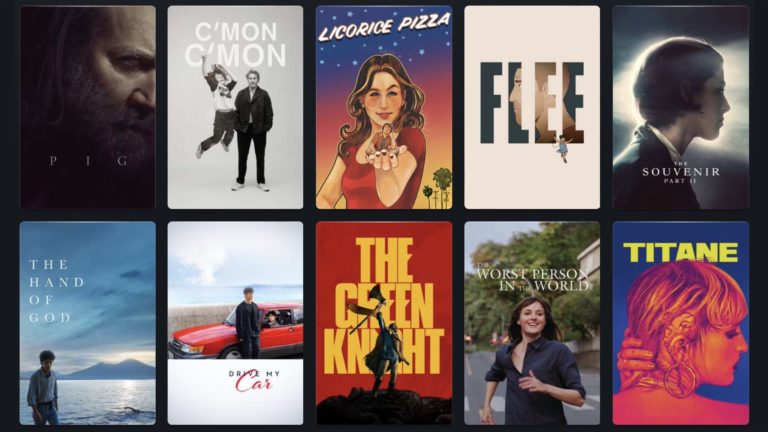In 2021 moviegoing ever-so-gingerly got back to something resembling normal. Sundance, SXSW, and SIFF stayed online, but by the late summer with vaccinations and testing I was lucky enough to get back into theaters for a couple glorious weekends of Telluride and TIFF. For the welcome thrill of getting back to the big screen, I was more than happy to show a vaccine card and wear a mask. Between festivals and the immense privilege of press screenings, I got to see quite a few of my favorites in cinemas while feeling relatively safe.
Since I have to cast a ballot at the end of the year for the Seattle Film Critics Society, I’m sticking with their definition of 2021 (which generally corresponds to the strange pandemic-related extension/abbreviation of the Academy Awards eligibility calendar) as I keep track of my ever-shifting rankings. I’m not sure if these are “the best” per se, but they’re film experiences that stood out the most for me.
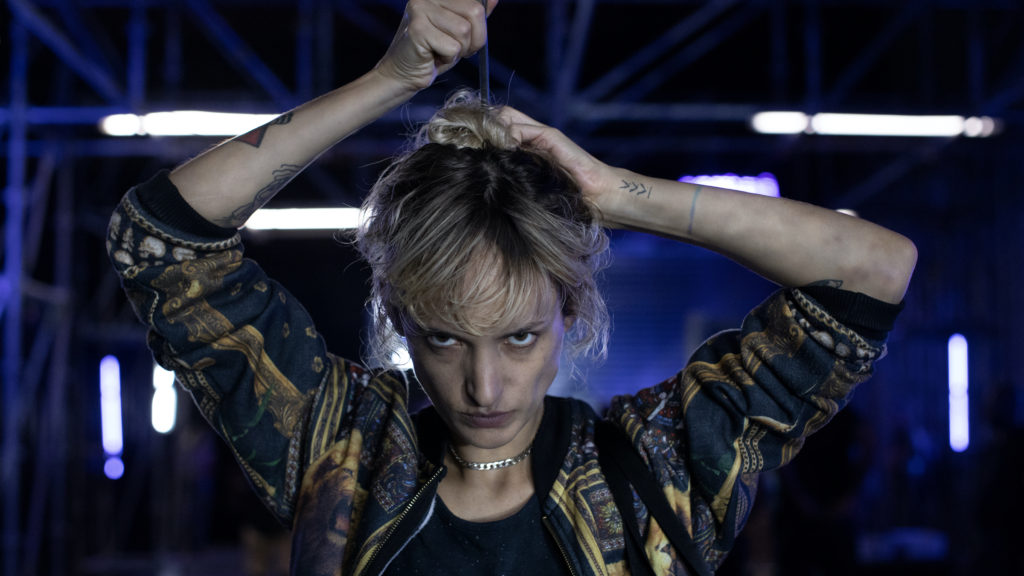
10. Titane (Julia Ducournau)
On paper, nothing in the plot of Titane makes anything resembling sense — a punk rock trade show model having passionate sex with a smoking hot Cadillac is only the beginning and quite possibly the most normal element of this Palme d’Or winner. But traditional logic doesn’t matter in the hands of a master director Julia Ducournau who flaunts such complete emotional command of the vibrant, horrifying, and surprisingly tender imagery that all of the complete insanity works perfectly on screen. As Agathe Rousselle barrels ahead through the incendiary and violent consequences of her one night stand, including a disguised sojourn with a grieving fireman played with remarkable depth by Vincent London, we are taken on a truly wild ride that’s often hard to watch but impossible to ignore. In the end, bodies might be the absolute worst, but they’re all we’ve got.
(Titane is available to rent on various VOD platforms)
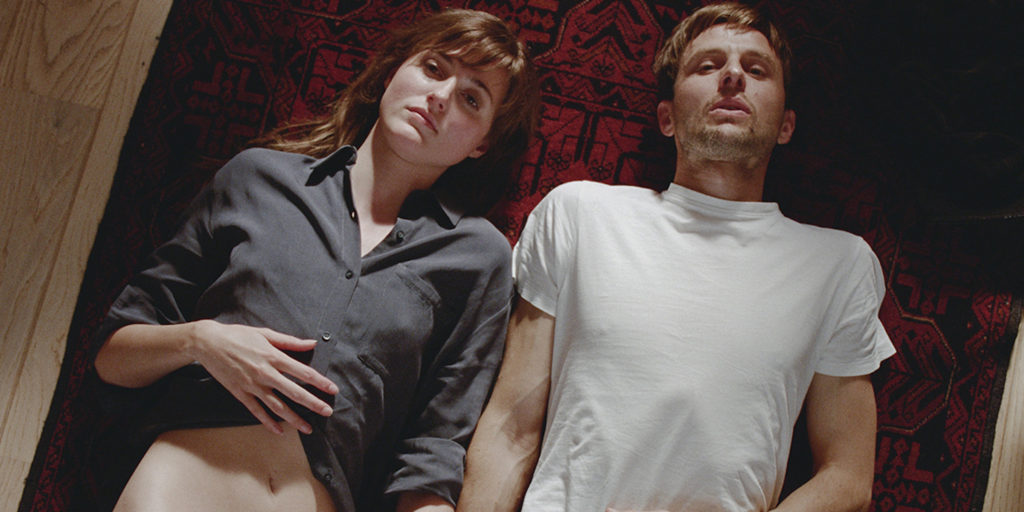
9. The Worst Person in the World (Joachim Trier)
Julie’s a smart but perpetually uncertain Norwegian thirtysomething who isn’t sure who she is or even who she wants to be, but in his deeply romantic comedy Joachim Trier generously affords her twelve chapters, a prologue, and an epilogue to begin to figure it out. Shot naturalistically in Oslo’s impossibly long northern summer, the film occasionally cracks open into magical realism with sparks of fresh attraction, ingestion of psychedelics, or imagination of slamming the door on one relationship to dive headlong into a new one. It’s a rare relationship movie that honors the messy selfish years in which an overachieving flake tries a bunch of roles to shape a life for herself without being defined by finding a partner or having a child. In other hands, Julie could be a toxic character, but in Renate Reinsve’s effervescent performance, she’s a breath of fresh air.
(The Worst Person in the World will have a limited theatrical release on February 4th 2022)
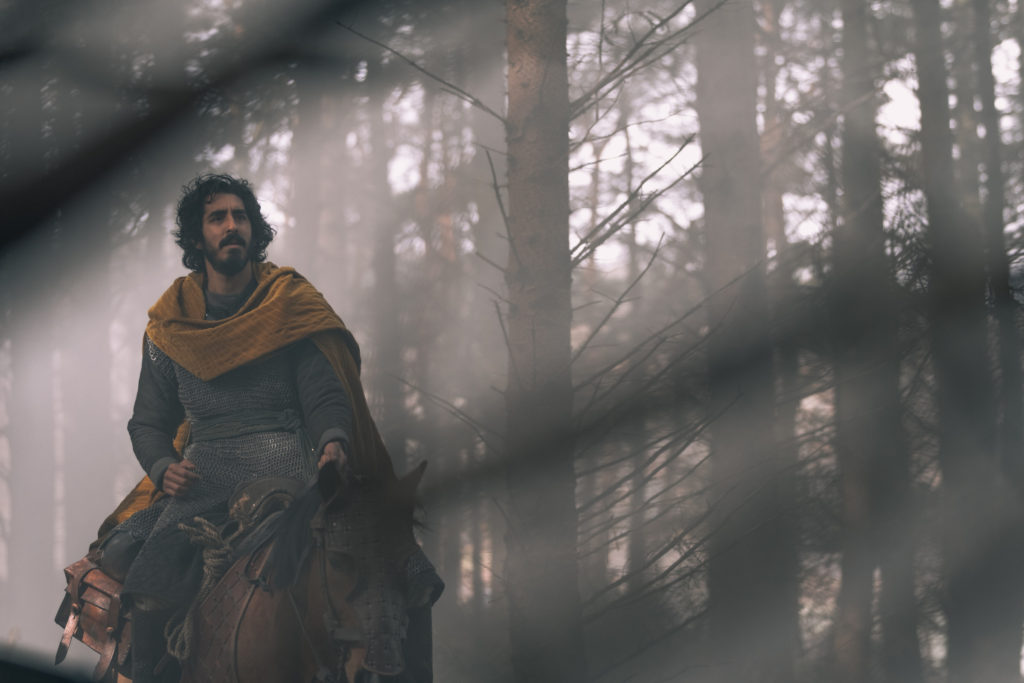
8. The Green Knight (David Lowery)
A bizarre Christmas Game from an ominous supernatural visitor gives King Arthur’s layabout nephew a chance to be a hero and to find out whether he has the stuff to live with the consequences. As Gawain, Dev Patel is a magnetic presence on a seemingly doomed, often psychedelic quest through the wilds of a wintry Irish countryside. Although it ends with a stunning crescendo of virtuosic filmmaking, David Lowery’s telling of this story is most enchanting for the time it spends with a would-be legend as he muddles through all of the absurd trials that separate him from a grim appointment with his own mortality.
(The Green Knight is currently rentable on various VOD platforms.)
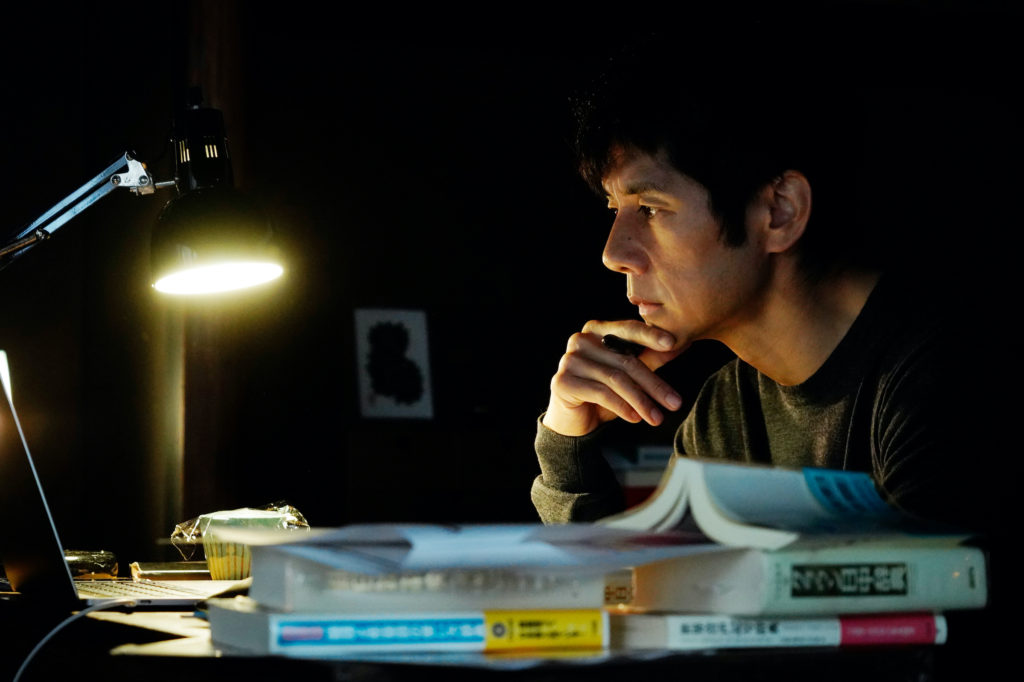
7. Drive My Car (Ryusuke Hamaguchi)
The definition of patience rewarded, the three hours spent watching Drive My Car are the closest replication of the feeling of sinking into a Haruki Murakami story I’ve encountered, with the added benefit of having none of the unfortunate surprise ghostly elements. Remarkably, the film’s most evocative scenes aren’t even directly portrayed on screen, but are conveyed directly through stories, conversations, and confessions shared by sad lonely people often while they’re seated side by side in a prized red Saab. Set amid the fascinating production of a multilingual production of Uncle Vanya, the parallels to Chekov may be occasionally on-the-nose, but it provides such a sturdy structure for revelatory character studies that and small moments that nevertheless feel like the universe tilting on its axis.
(Drive My Car is currently in limited theatrical release.)
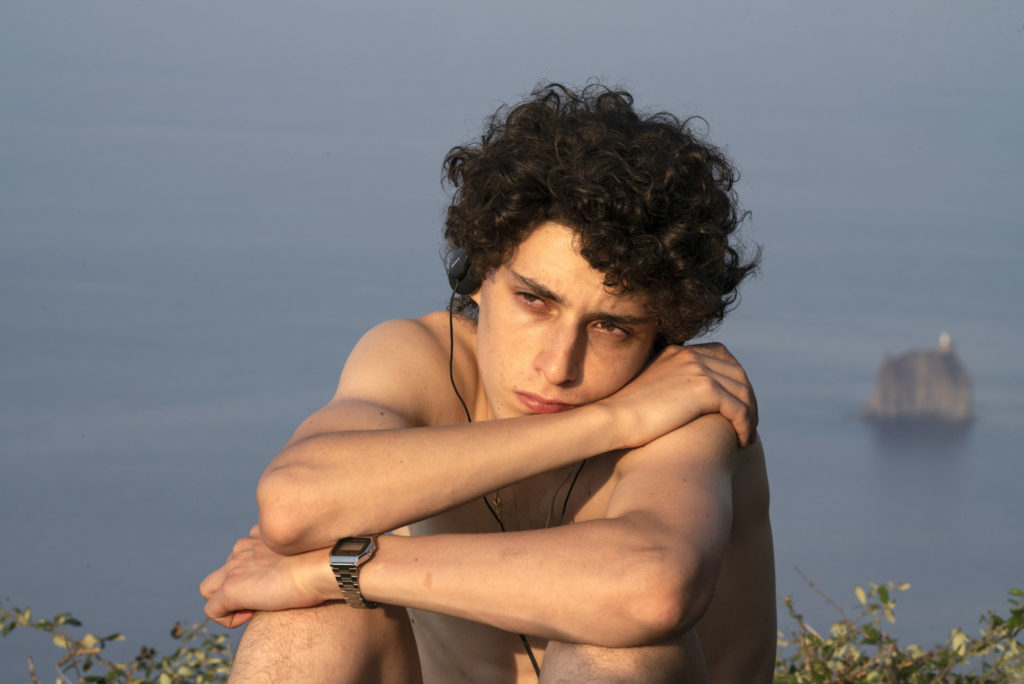
6. The Hand of God (Paolo Sorrentino)
Paolo Sorrentino shifts from the grand operatics of power in the Vatican to instead tell a closely observed memoir that’s a love letter to his own cinematic influences. The title references soccer legend Diego Maradona, whose stint in Naples coincided with a tragic incident and indirectly saved the director’s life. What starts as a riotous carnival of faces and personalities of sprawling family grows increasingly surreal and introspective as young actor Filippo Scotti (acting as the director’s avatar) navigates the city’s delightful mess, hot-blooded personalities, and a journey of artistic awakening. Humane and visually striking, with one of the most unlikely seductions in the coming-of-age canon, it tells the impossibly big story of how you became who you are.
(The Hand of God is currently available on Netflix)
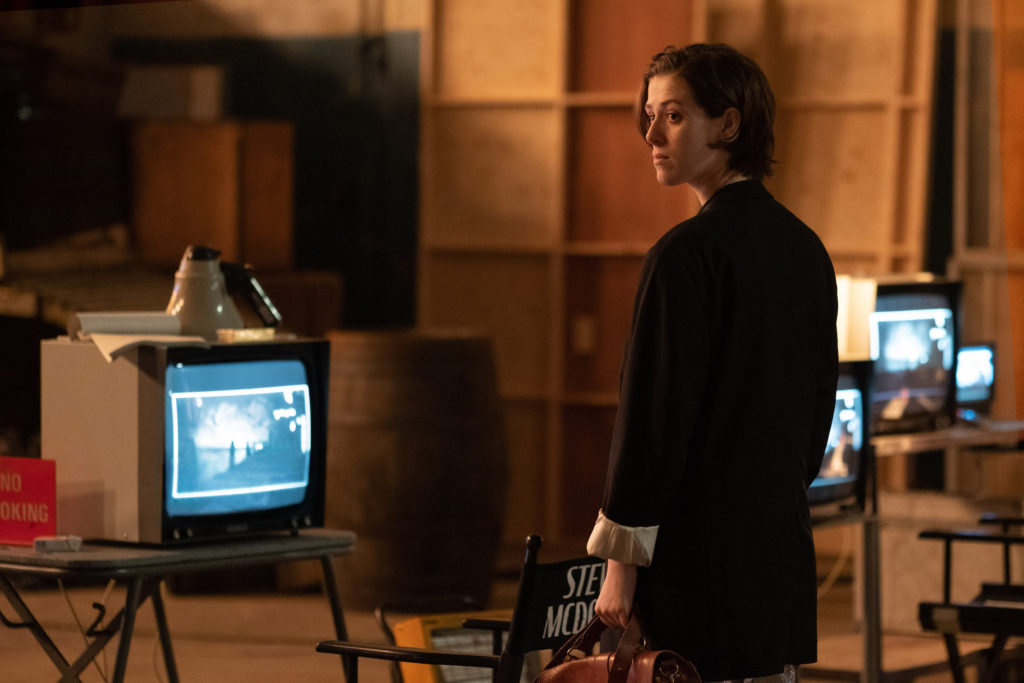
5. The Souvenir Part II (Joanna Hogg)
I don’t know what we did to deserve a sequel to The Souvenir, let alone one with expanded screen time for Richard Ayoade, but what a time to be alive. In Part I, Joanna Hogg introduced an upper class film student’s tumultuous and formative relationship with a mysterious man. Here, we have film (the Souvenir: Part II) about making that film (the Souvenir), which is itself the prequel to the film we’re watching. Rather than a nightmarish warren of self-referentiality, this sequel shimmers with life and deepens the portrait of a character at a creative precipice. When Part II concludes in a scene that directly reflects the opening sequence of Part I, one can’t help but be stunned by the supreme confidence and clarity of purpose by which Hogg has guided us through a metatextual hall of mirrors. It’s a sparkling triumph of cinematic memoir that contains multitudes.
(The Souvenir Part II is awaiting digital release)
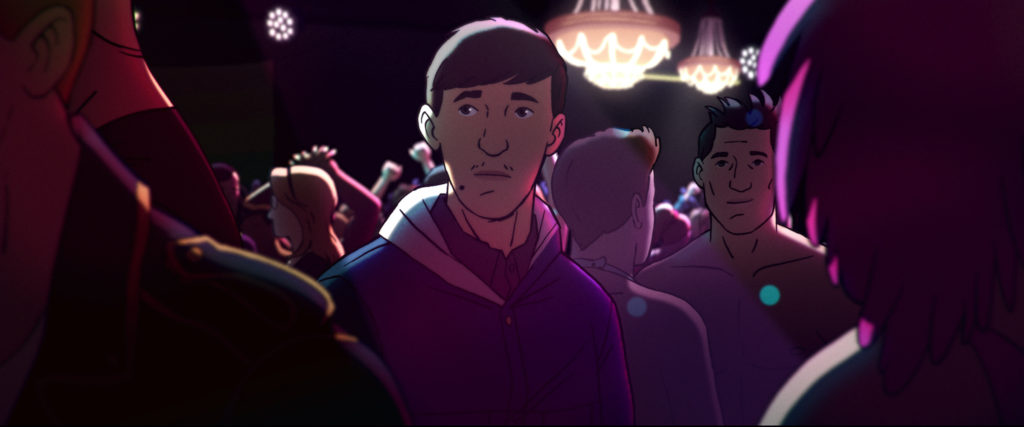
4. Flee (Jonas Poher Rasmussen)
I’m shocked that an animated film has lodged itself near the top of my list since seeing it online at Sundance last winter, but Jonas Poher Rasmussen’s documentary about his best friend’s Amin’s escape from Afghanistan as a teenager in the 1980s justifies its medium with every frame. As the film opens in Copenhagen amid domestic bliss and career success, Amin is finally willing to share the long-hidden details of his flight from the Mujadeen as a teenager. While the lovely rotoscoped animation protects Akim’s identity, the safety it provides also has a way of opening the film to a broader refugee experience without sacrificing specificity. Benefitting from the tremendous trust between friends, the film conveys the twin complexities of Amin realizing he was gay in a society with no word for “homosexual” and enduring the corrosive effects of survivor’s guilt from a life that necessitated deception. It’s a tremendous piece of storytelling, exceptionally achieved.
(Flee is currently in limited theatrical release.)
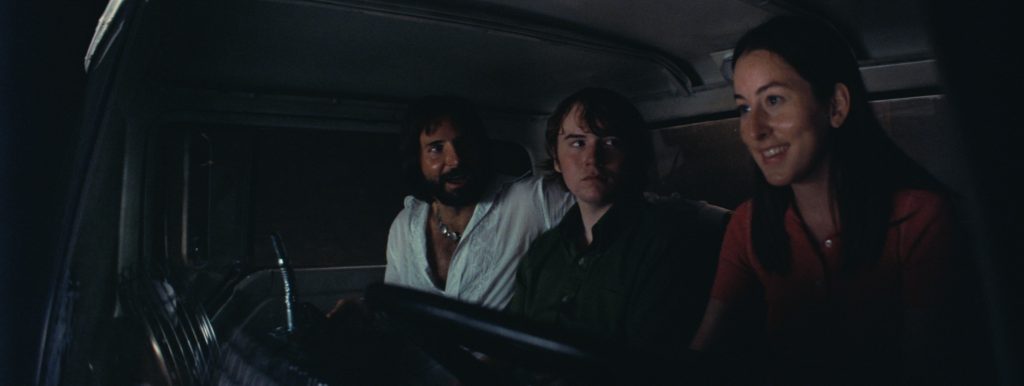
3. Licorice Pizza (Paul Thomas Anderson)
I don’t know that it’s physically possible for me not to love a Paul Thomas Anderson movie, so it’s no surprise how much I enjoyed being dropped into a master filmmaker’s memories of his youth in the San Fernando Valley. Episodes from an eventful year are strung together through the story of an unconventional friendship between wayward twentysomething Alana Kane (a radiant performance from musician Alana Haim) and teenage child actor-turned-entrepreneur Gary Valentine (a confident debut from Cooper “son of Philip Seymour” Hoffman) who’s smitten with her at first sight on school picture day. As she tries on various identities for size, outsized personalities pass through their orbits (allowing for some huge performances from the likes of Bradley Cooper as a wild-eyed menacing producer, Sean Penn as a pickled past his prime matinee idol, Benny Safdie as an idealistic politician, and Harriet Sansom Harris as an intense casting agent) and capture the sense of boundless possibilities around every corner. Although these seemingly disparate reminiscences threaten not to cohere, they eventually coalesce in a breathtaking sequence scored to some of the most sweetly optimistic sounds that Jonny Greenwood has ever composed — when illusions about the world fade and give way to a clear vision of what these characters want, even if it doesn’t entirely make sense.
(Licorice Pizza is currently playing in theaters.)
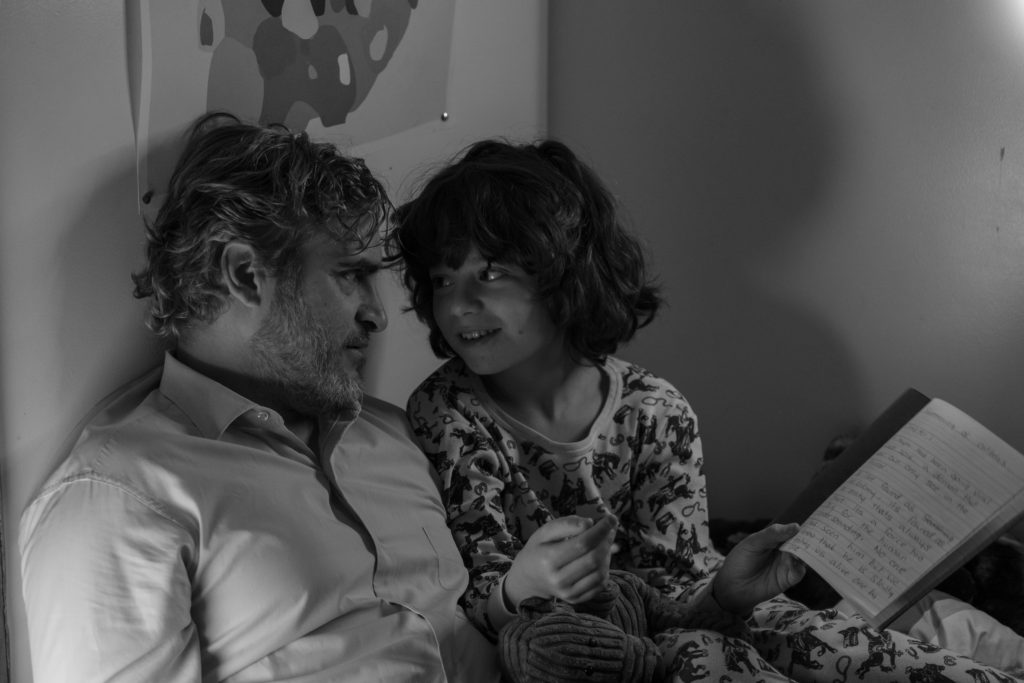
2. C’mon C’mon (Mike Mills)
Completing the family trilogy – three successful movies in one
Mike Mills is a filmmaker whose work always feels like it has tiny electrified needles prodding my cold dead heart to burst with sentimentality and his latest is no exception. Completing an informal familial trilogy that started with stories inspired by his father and mother (Beginners and Twentieth Century Women), C’mon C’mon approaches the experience of raising a kid by way of the bond forged between an uncle and his nephew during a month of impromptu surrogate parenting. Joaquin Phoenix finally gets a chance to shed his sharp weird edges and play a nice public radio journalist against amazingly effective child actor Woody Norman’s portrayal of a quirky but never precious kid. As their relationship builds, Mills interweaves a mini documentary of real children in urban areas sharing their thoughts about the present and speculating about the future. The cumulative and complementary effect of these sections is an astonishing gestalt about the ways that people take care of each other all the time.
(C’mon C’mon is currently playing in theaters.)
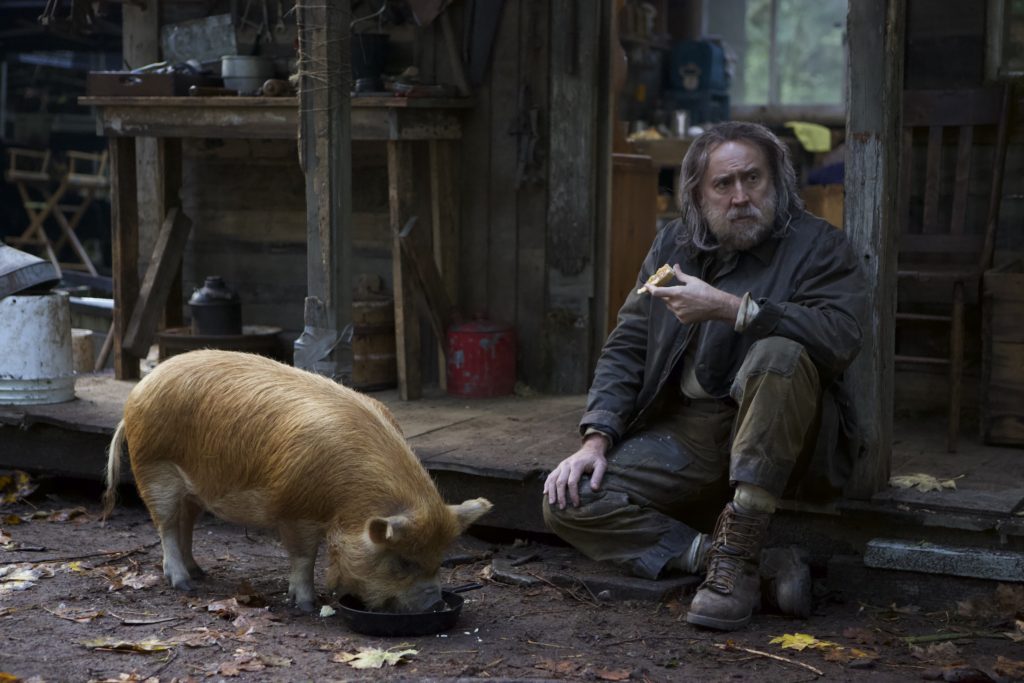
1. Pig (Michael Sarnoski)
Nicholas Cage is an acclaimed chef who disappeared to the woods decades ago to spend his days hunting truffles with a beloved pig rather than process his own grief. When his adorable animal companion is violently taken from him, he’s forced to return to the city he fled to descend into the seedy depths of Portland’s high-end culinary economy. With Alex Wolff as his truffle-dealer turned guide, he follows the threads of his past around a city where everyone’s so used to weirdness that even high-end molecular gastronomy restaurant staff barely notice that their guest is visibly bleeding from the face. At any moment, this film could’ve become a terrible John Wick parody of violence, but Sarnoski steers the story and Cage’s latent intensity with absolute precision through fatalistic monologues, blunt confrontations, and the challenging preparation of a meal that would be at home on a Top Chef finale. If this all sounds ridiculous, you’re absolutely right. But it’s also sublime.
(Pig is available for rent on various services and is currently streaming on Hulu)
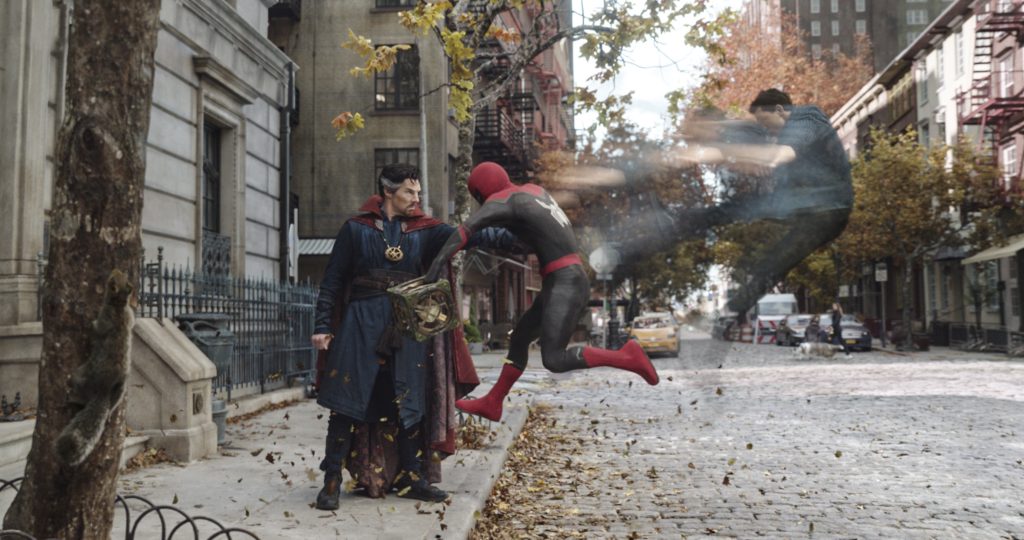
Honorable Mentions/Jury Awards:
Jane Campion’s spikily sharp The Power of the Dog for subverting the Western and maintaining agonizing suspense until the very end; The French Dispatch for Wes Anderson’s sneakily sentimental celebration of work as a source of belonging; Ridley Scott’s House of Gucci for giving Lady Gaga and Jared Leto a spotlight for ambitious accent work; Bergman Island for the best story-within-a-story in Mia Hansen-Løve’s delicate commentary on the creative process; the multitudes contained by Olivia Colman’s look of dismay when a pack of rowdy tourists interrupt her quiet beach afternoon in The Lost Daughter; I loved Luca for being a Pixar movie that was finally “just” about specific people (I mean fish-monsters) figuring themselves out; Shiva Baby for being the year’s scariest horror movie; Jimmy Chin and Elizabeth Chai Vasarhelyi for once again making a story with a known ending edge-of-your-seat suspenseful in The Rescue; the dazzling dance sequences of In the Heights and the surprisingly successful update of Steven Spielberg’s West Side Story; Denis Villeneuve’s Dune as as the most compelling argument for experiencing movies on the biggest available screen; and finally Spider-Man: No Way Home‘s carefully considered deployment of nostalgia not as a cheap trick, but in service of character that also made it the most rewarding fun that I had in a theater all year.
All of the Sunbreak’s Year-end lists: Josh | Morgen | Chris | Tony



